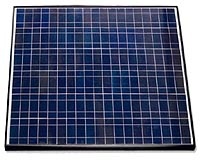 |
London, UK (SPX) May 13, 2009 Increased competition and the global economic crisis have cast clouds upon the Western European solar energy market. Falling polysilicon and solar module prices have the potential to cement China's role as a solar manufacturing hub. In terms of installed capacity, the United States is playing a greater role as more and more states are putting the renewable energy standards into existence. Despite these market developments and the current economic crisis, the future of Europe's solar energy market continues to appear bright as new emerging markets within Europe may turn into strong performers. Europe and Japan were the original trailblazers of the solar energy industry; thus they have historically held the strongest positions. Europe, specifically Germany, has been by far the most important player and manufacturing hub in the global solar market. Its position has recently started to weaken as other countries have been gaining a stronger momentum in the solar energy business. The European market is now facing two major competitors. The Chinese industry is forcing the rest of the world to reduce manufacturing costs as they are in a position to manufacture solar modules at the lowest cost. The US, having adopted a pledge for energy independence, which increased political support for renewable energy, is giving a boost to its solar energy industry. "When solar cell and module manufacturing come into play, Asian producers have been on the aggressive expansion curve eating into Japanese and European manufacturer's market shares. Low costs and increasing technological acumen will help them further expand their presence in the global solar markets," says Frost and Sullivan Green Energy Research Manager Alina Bakhareva. "The US, having utilised only a fraction of its immense solar potential, has all ingredients to breed a strong and well-diversified solar market." In spite of these new competitors' entrance onto the global playing field, Europe is expected to retain a strong portion of the market share. The region stands out on a global solar landscape as one of few that have been successfully developing the three major components needed to build a well-rounded domestic solar industry: research, a strong manufacturing base, and government support. "Given the difficult macro-economic situation globally, tight credit markets, and reducing level of government support in comparison with 2008, the retail and residential solar markets may suffer the most with the demand taking a plunge on low consumer confidence and unwillingness to spend," continues Bakhareva. "The large-scale projects with secured finances are likely to go ahead, while new ones may struggle to attract investment at a reasonable cost in the near term. In these turbulent economic times, a shakeout will make the industry stronger by leaving only players that are able to offer the best products at best prices. A harsh truth for many smaller European manufacturers is that they are likely to fall prey to the globalisation of the solar industry as companies with stronger balance sheets begin to acquire their less fortunate counterparts. Despite the big challenges ahead, the long-term sentiment towards renewable energy, and the solar industry in particular, remains optimistic." In regard to individual markets, the German solar power industry continues to be one of the European market's strongest sectors. The retail segment is currently suffering due to lack of consumer confidence and unwillingness to spend. Commercial scale projects, however, offer a ray of sunlight amidst the gathering clouds. Many major manufacturers have made announcements to increase capacity or build new plants, and the construction has begun for Germany's largest solar PV station with 63 MW of installed capacity. France has been traditionally in favour of Building Integrated Photovoltaic (BIPV) technologies, an application which enjoys the highest tariff of up to euro 0.55/kWh. "While the country has shown quite reasonable growth rates over last five years," adds Bakhareva, "the overall feeling is that solar market would have developed to a greater extent if the policy had been equal to various types of installations." Since enacting a new feed-in tariff in spring 2007, Spain has turned into a vital source of demand for solar markets worldwide. Developers rushed to install as many systems as possible before September 2008 to take advantage of a generous feed-in tariff of euro 0.42 per kWh, which led to the government being swamped with applications, causing severe delays. After approving 392 projects, the government capped installations and lowered tariffs. As a result, the 2009 newly installed capacity has a very slim chance of matching that of 2008. Italy and Greece have the potential to become successful emerging markets due to attractive tariffs, but administrative barriers cause them to remain a sleeping giant. Another emerging market, the Czech Republic, kick-started its solar power industry in 2007 by installing 4.5MM of solar power. The Czech Republic may turn into one of the strongest performers in 2009 in terms of growth rates. Share This Article With Planet Earth
Related Links Frost and Sullivan All About Solar Energy at SolarDaily.com
 Introducing Black-Framed String Ribbon Solar Panels
Introducing Black-Framed String Ribbon Solar PanelsMarlboro MA (SPX) May 13, 2009 Evergreen Solar has introduced its new black-framed ES-A Series String Ribbon solar panels. These panels are an improvement of the company's line of 200, 205 and 210 W solar panels designed with a black frame that, when installed on roofs, improves the aesthetic appearance of solar arrays. Evergreen Solar's new line of ES-A black-framed String Ribbon panels will be available for viewing ... read more |
|
| The content herein, unless otherwise known to be public domain, are Copyright 1995-2009 - SpaceDaily. AFP and UPI Wire Stories are copyright Agence France-Presse and United Press International. ESA Portal Reports are copyright European Space Agency. All NASA sourced material is public domain. Additional copyrights may apply in whole or part to other bona fide parties. Advertising does not imply endorsement,agreement or approval of any opinions, statements or information provided by SpaceDaily on any Web page published or hosted by SpaceDaily. Privacy Statement |